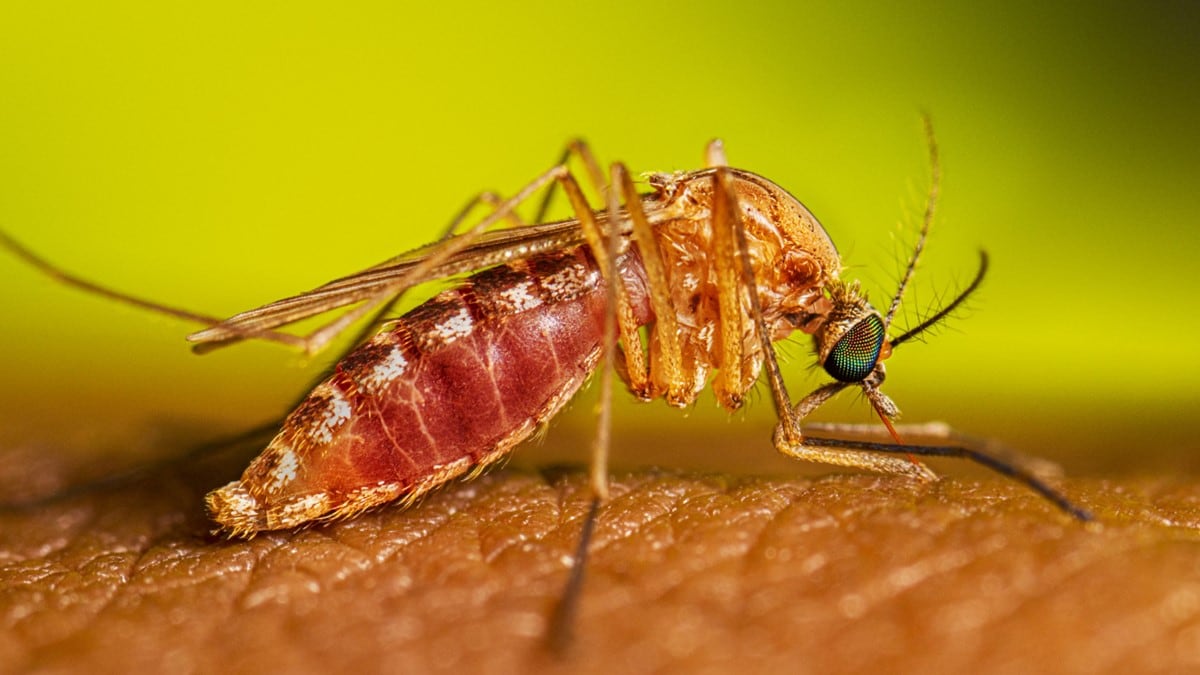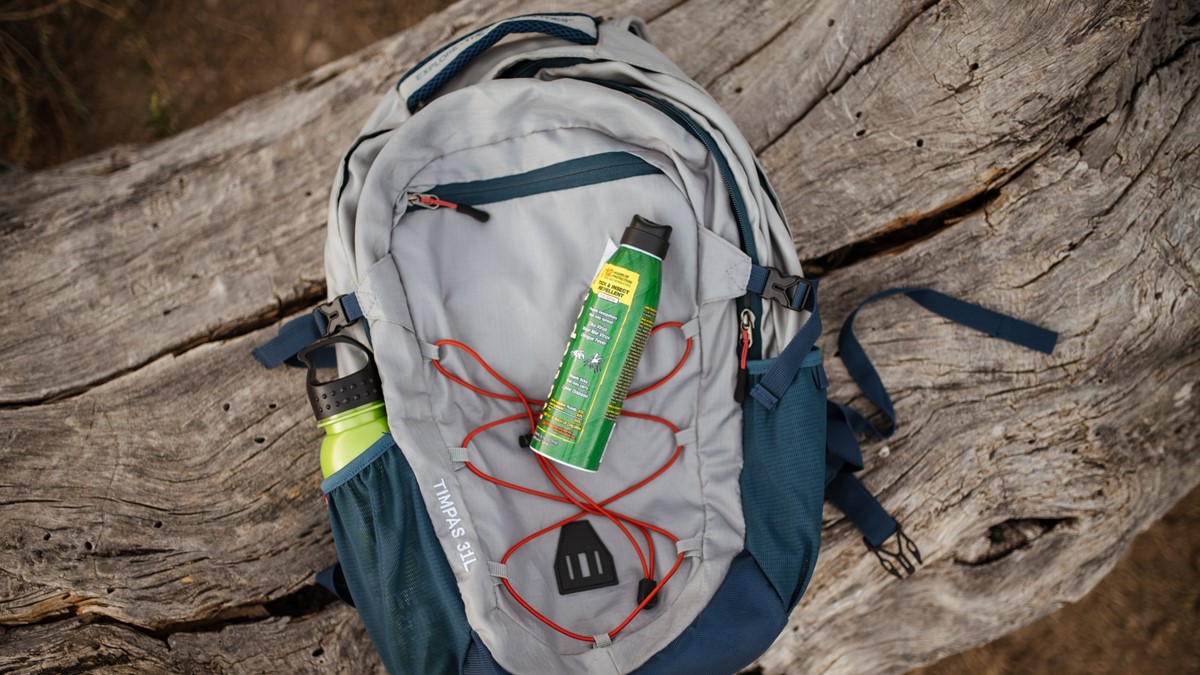Key points
- Mosquito season starts in the summer and continues into the fall.
- Southernmost U.S. states have a longer mosquito season.
- Mosquitoes bite day and night.
- For most germs spread by mosquitoes, no vaccines or specific medicines are available.
- The best way to prevent illnesses from mosquito bites is to protect yourself and your family from bites.

Mosquito bites can make you sick
Almost everyone in the world has been bitten by a mosquito. Although most types of mosquitoes are just nuisance mosquitoes, some types of mosquitoes spread germs (viruses and parasites) that can cause disease. For most germs spread by mosquitoes, no vaccines or specific medicines are available.
Mosquitoes bite during the day and night, live indoors and outdoors, and search for warm places as temperatures begin to drop. Some mosquitoes hibernate in enclosed spaces, like garages, sheds, and under (or inside) homes, to survive cold temperatures. Except for the southernmost U.S. states, mosquito season starts in the summer and continues into fall.
The best way to prevent illnesses from mosquito bites is to protect yourself and your family from bites.
Increasing outbreaks and epidemics
Disease epidemics from viruses spread by mosquitoes are happening more often. These include recent dengue outbreaks in many countries worldwide, the Zika epidemic (2015-2017), and the chikungunya epidemic (2013-2014). West Nile virus is the most common virus spread by mosquitoes in the continental United States.
In the United States, people also get sick from less common viruses spread by mosquitoes, like eastern equine encephalitis or St. Louis encephalitis. From 2004 to 2018, most U.S. cases of dengue, chikungunya, and Zika were reported in U.S. territories.
Prevent mosquito bites
Use insect repellent
When used as directed, Environmental Protection Agency (EPA)-registered insect repellents are proven safe and effective, even for those who are pregnant and breastfeeding.
Cover up
Wear loose-fitting, long-sleeved shirts and long pants when outside.
Keep mosquitoes outside
Use air conditioning or window and door screens. If you are not able to protect yourself from mosquitoes inside your home or hotel, sleep under a mosquito net.

Plan ahead for travel
Make a check list of everything you’ll need for an enjoyable vacation and use the following resources to help you prepare.
- Learn about destination-specific health risks and recommendations by visiting CDC Travelers’ Health website.
- Pack a travel health kit. Remember to pack insect repellent to prevent mosquito bites.
- See a healthcare provider familiar with travel medicine, ideally 4 to 6 weeks before your trip.
- Go to the CDC Find a Clinic page for help in finding a travel medicine clinic near you.
Some travel vaccines are available
For most germs spread by mosquitoes, no vaccines or specific medicines are available. However, vaccines are available for chikungunya, Japanese encephalitis, and yellow fever. Visitors to areas with risk of those diseases should do their homework by visiting the CDC Travelers' Health site and get vaccinated.
After traveling
- Even if you do not feel sick, prevent mosquito bites for 3 weeks after your trip to prevent spreading viruses like dengue, Zika, or chikungunya to uninfected mosquitoes.
- If you have symptoms after travel, including fever, headache, muscle and joint pain, and rash, see your healthcare provider immediately and share your travel history.
What state and local public health agencies do
State and local public health agencies:
- Build and maintain public health programs that test and track diseases and the mosquitoes that spread them.
- Train vector control staff on five core competencies for conducting prevention and control activities.
- Educate the public about how they prevent and control mosquito-borne diseases in their communities.
What CDC is doing
The Centers for Disease Control and Prevention (CDC):
- Funds states and territories to detect and respond to infections from mosquitoes, ticks, and fleas, and report cases to CDC.
- Partners with local and tribal health departments, industry, universities, and international groups to detect and respond to diseases from mosquitoes.
- Trains clinicians, entomology professionals, public health professionals, and communities to prevent and control VBDs.
- Provides internship and fellowship opportunities through the Public Health Entomology for All program.
- Supports regional Centers of Excellence in Vector-Borne Diseases to address emerging diseases from mosquitoes and ticks.
- Expands our nation's capacity to prevent and control vector-borne disease through Regional Training and Evaluation Centers.
- Develops and improves laboratory and diagnostic tests for mosquito-borne diseases.
- Supports public health labs and researchers by providing funding, diagnostic testing support, and reagents.
- Educates the public about protecting themselves from mosquito bites and the viruses they spread.
National Strategy for Vector-Borne Diseases
Resources
CDC B-roll
- Aedes aegypti mosquito life cycle
- Working with mosquitoes at CDC
- Preventing mosquito bites
Additional resources
- Mosquito Control
- What You Can Do to Control Mosquitoes During an Outbreak
- What to Do After a Hurricane or Flood
- U.S. Environmental Protection Agency: Find the Repellent That Is Right for You
- National Association of County and City Health Officials: Mosquito Control Capabilities in the US
Potential range maps
- Potential Range of Aedes aegypti and Aedes albopictus in the United States, 2017
- Monaghan AJ, Eisen RJ, Eisen L, McAllister J, Savage HM, Mutebi JP. Consensus and uncertainty in the geographic range of Aedes aegypti and Aedes albopictus in the contiguous United States: Multi-model assessment and synthesis. PLOS Computational Biology. 2019 Oct 10: https://doi.org/10.1371/journal.pcbi.1007369
Photos
Find recently added photos in CDC's Public Health Image Library. Enter "DVBD" into the PHIL Quick Search field. You'll find photos of mosquito bites, mosquitoes, larvae, pupae, eggs, people using insect repellent, and more.
